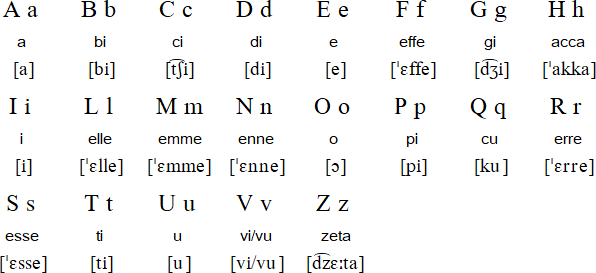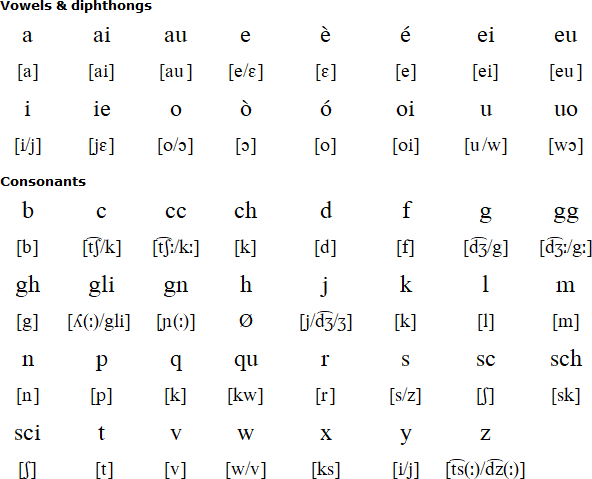Italian is a Romance language spoken mainly in Italy, Switzerland, San Marino, Vatican City, Slovenia and Croatia. In Switzerland it is spoken in Graubünden and Ticino cantons in the south east. In Croatia it is spoken mainly in Istria county in northwest, and it is spoken in the neighbouring Istria region of southwest Slovenia. There are also Italian speakers in other countries, including Malta, Monaco, Romania, France, Eritrea, Somalia, Brazil Australia and the USA.
There are about 64 million native speakers of Italian worldwide, another 3 million people speak it as a second language.
In Italy in 2012 about 59 million people spoke Italian. Half the population speak standard Italian as a native language, and the other half speak regional dialects and languages as their first languages, and Italian as a second language.
There are about 1.4 million Italian speakers in Romania, 829,000 in France, 666,000 in Switerland, 618,000 in Croatia, 272,000 in Australia, 234,430 in Malta, 50,000 in Brazil, 25,000 in San Marino, and smaller numbers in other countries [source]. There are also about 708,000 Italian speakers in the USA [source] and 375,600 in Canada [source].
Italian first started to appear in written documents during the 10th century in the form of notes and short texts inserted into Latin documents such as lawsuits and poetry. For a long time there was no standard written or spoken language in Italy and writers tended to write in their own regional dialects and languages. In northern Italy, which was often ruled by the French, French and Occitan were used as literary languages.
During the 13th century such writers as Dante Alighieri (1265-1321), Petrarch and Boccaccio were influential in popularising their own dialect of Italian - the Tuscan of Florence (la lingua fiorentina) - as a standard literary language. By the 14th century the Tuscan dialect was being used in political and cultural circles throughout Italy, though Latin remained the pre-eminent literary language until the 16th century.
The first grammar of Italian with the Latin title Regule lingue florentine (Rules of the Florentine language) was produced by Leon Battista Alberti (1404-72) and published in 1495.
During the 15th and 16th centuries both Latin and Italian were used for technical and scientific texts. The Italian used was full of Latin words and over time Latin was used less and less as Italian became increasingly popular.
Today the Tuscan dialect is known as Italian (Italiano) and is the offical language of Italy. It is the main language of literature and the media.

A recording of the Italian alphabet by Riccardo Cristiani
Hear the Italian alphabet with example words:
The letters j (i lunga), k (cappa), w (vi/vu doppia) x (ics) and y (i greca) do appear in Italian but are thought of as foreign letters. They are used mainly in foreign loan words and their pronunciation depends on the word they appear in.

Download an alphabet chart for Italian (Excel)
Tutti gli esseri umani nascono liberi ed eguali in dignità e diritti. Essi sono dotati di ragione e di coscienza e devono agire gli uni verso gli altri in spirito di fratellanza.
A recording of this text by Jacopo Sebastiano Foroni
All human beings are born free and equal in dignity and rights. They
are endowed with reason and conscience and should act towards one another
in a spirit of brotherhood.
(Article 1 of the Universal Declaration of Human Rights)
Information about Italian | Phrases | Family words | Terms of endearment | Colours | Numbers | Time | Weather words | Tongue twisters | Tower of Babel | Articles | Links | Learning materials
Information about the Italian language
http://en.wikipedia.org/wiki/Italian_language
http://www.italianlanguageguide.com
Online Italian courses
http://www.bbc.co.uk/languages/italian/
http://www.iluss.it/
http://italian.speak7.com
http://www.yesitalian.net
http://polymath.org/italian.php
http://www.studyitalianlanguage.org
http://ilovelanguages.org/italian.php
https://www.loecsen.com/en/learn-italian
https://www.theitalianexperiment.com/
https://lingookies.com/
http://www.italianpod101.com/
http://www.italyan.com (in Turkish)
Find Italian Tutors, Teachers and Lesson Help
Italian survival phrases
http://www.transparent.com/languagepages/italian/fsItalian.htm?link=coolstufftab
Centro Giacomo Puccini - Italian language school
http://www.centropuccini.it
The Italian Language - history, comments and facts about Italian, plus a pronunciation guide and several specific word lists: http://www.italian-language-study.com
Links to more online Italian language resources
Aragonese, Aranese, Aromanian, Asturian, Catalan, Corsican, Dalmatian, Emilian-Romagnol, Extremaduran, Fala, Franco-Provençal, French, Friulian, Galician, Gallo, Gascon, Genoese, Guernésiais, Istro-Romanian, Istriot, Italian, Jèrriais, Ladino, Ladin, Ligurian, Lombard, Lorrain, Megleno-Romanian, Mirandese, Moldovan, Monégasque, Mozarabic, Neapolitan, Occitan, Occitan (Auvergnat), Occitan (Languedocien), Occitan (Limousin), Occitan (Provençal), Picard, Piedmontese, Portuguese, Romanian, Romansh, Sardinian, Sicilian, Spanish, Valencian, Venetian, Walloon
Languages written with the Latin alphabet
Page last modified: 29.05.23
[top]
You can support this site by Buying Me A Coffee, and if you like what you see on this page, you can use the buttons below to share it with people you know.

If you like this site and find it useful, you can support it by making a donation via PayPal or Patreon, or by contributing in other ways. Omniglot is how I make my living.
Note: all links on this site to Amazon.com, Amazon.co.uk
and Amazon.fr
are affiliate links. This means I earn a commission if you click on any of them and buy something. So by clicking on these links you can help to support this site.
[top]